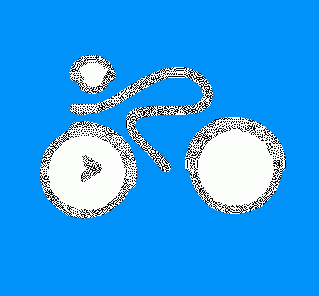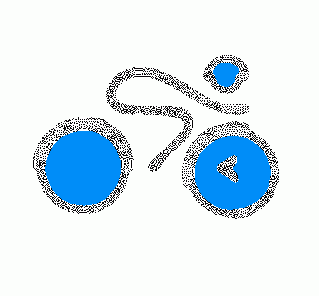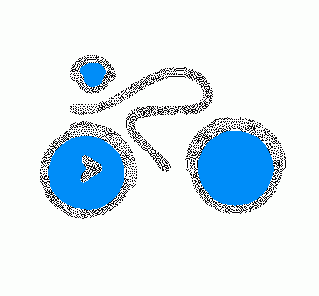| Newsletter - 2001 Archive |

|

|
Cycling Club |

|

|
| Newsletter - 2001 Archive |

|

|
Cycling Club |

|

|
Next--->
Eric Fergusson asks "so what's the deal with these time limits anyway?" and goes on to make a case suggesting more relaxed limits. Danelle Laidlaw presents her views on keeping the existing limits. I'm not a member of the BC Randonneurs, but I am a member of RUSA and the Seattle International Randonneurs and when I read these two articles, I felt compelled to respond. I am not in favor of changing any of the time limits and in this article, I'll outline my reasons for this.
Eric begins his article with the contention that the time limits exist primarily for "practical management of the controls" and describes how he offers the encouraging words to new riders that "It's unlikely that you or I will be outside the time envelope no matter how fast or slow we are riding."
I question the premise behind both of these statements. From my perspective, the time limits exist because they are an integral part of the challenge of randonneuring. The challenge is not "ride 200k". It is "ride 200k, on this course, on this date, hitting these checkpoints within these time limits". This is never a gimme. There is always a possibility of failure. That is the challenge.
Our sport is somewhat unique in that it does not draw a big distinction between the first finisher of an event and the last. It does, as Eric notes, value the determination and effort of each rider. But that determination is measured against a scale. And that scale is marked by geography, weather, circumstance and time. And whenever you have a scale, there will be some people who fail to meet the scale. And I think that possibility of failure is, at least for some of us, a prime motivator.
Eric says that we are discriminating against cyclists on the basis of speed and that this discrimination "indirectly runs deeper - our age, sex, whether we have a disability, and whether we can afford a fast bike, are all factors affecting our cycling speed." Somehow, it seems, we should only measure effort and determination.
I believe that our current system accurately measures effort and determination. However, the measure that is taken in our brevets is not only a measure of that brevet, it is a measure of what has brought the rider to the brevet. That is, the long hours ridden on dark and rainy roads, the miles and hours spent learning to work the body and the bike, the countless challenges met and mastered.
Is our current scale too harsh, too exclusionary? What about the old or those with disabilities? Perhaps we should ask Jack Eason (75 years old), or Van Epps (who I last saw hand-cranking his way on the 1999 PBP). And even though Jack and Van have had their share of victories over circumstance, they've had times when circumstance was the victor. But that is the fuel, the secret of eventual victory. It's not about Gu or titanium bikes. It's about determination. I don't think Jack or Van would want you to change the scale for them.
But they are extraordinary men, you might say. And I would counter that they are extraordinary because they've pushed against limits. And athletic events, including randonneuring, are about goals, determination and surpassing limits. The limits exist to strengthen us, make us better even as we chafe against them.
Would it hurt to lower the bar? Wouldn't we gain a wider field if we opened things up more? I think Danelle makes a good point when she questions what actual gain in numbers an expanded time range would give but I also think it's important to note that changing the limit would diminish what it means to finish. The value of a medal comes not from its shine, but the effort put into its acquisition. Lowering the bar diminishes the effort needed and thus diminishes what we mean when we say we are randonneurs. Is this elitist? Yes, we are an elite group in the true sense of the word. We are separated from most of the world by what we have willed ourselves to do.
So far, I've not mentioned the fast riders, the ones who chafe at the other end of the time limit. Eric feels that pointing out they can get racing licenses is dismissive of his concern. But I think this is a valid point.
The very fast do have avenues to pursue their need for speed. There is an active ultra-cycling community and as Eric noted, in PBP there is no fast limit. But just as the low-speed cut-off defines randonneuring as being something different from touring, the high-speed cut-off differentiates randonneuring from racing.
The existing time limits do have the weight of history behind them and with that comes the world-wide fraternity of randonneurs. A brevet series done in Russia or Australia or Wisconsin has the same value since we are measured against a common scale. I do not feel that scale should be changed lightly. It is not a scale that exists because of a blind adherence to tradition. It is a scale that exists because for a vast majority of randonneurs, it accurately measures true effort and determination.
_